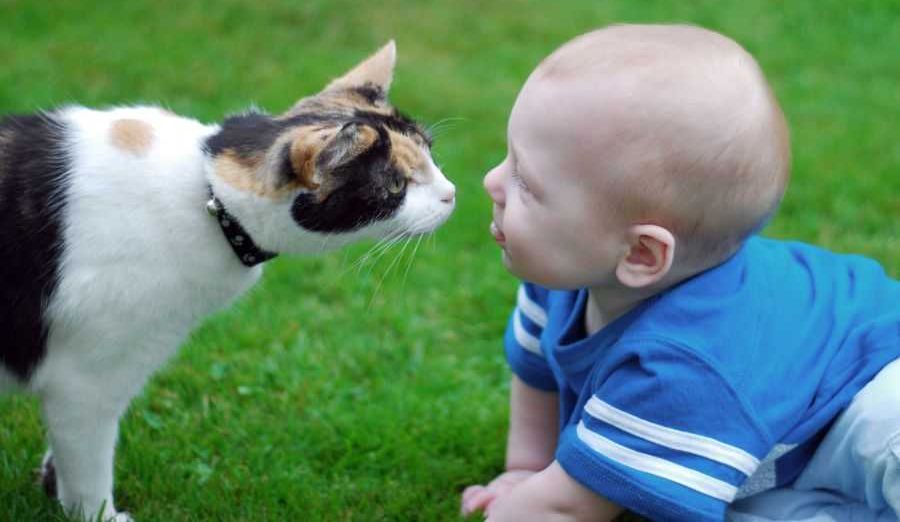Yes, even cats have a favorite person. How they choose and how to tell they've picked you.
Just because they seem uninterested doesn't mean they don't pick favorites.
Even cats have a favorite person. Here's how they choose.
Cats may be persnickety at times or appear aloof to the presence of humans, but that doesn't mean they don't have their favorites. Just like dogs, cats also fancy having a human best friend, but unless the feline companion is overly affectionate, one may not know they've been chosen.
Some cats live up to the expectation that they will give the most attention to the person who likes them the least. But most cats are particular about who they choose to give their attention to. In a one-person household, there could be a real possibility that the human in the equation isn't the favorite. After all, cats are not dogs who will be excited by their humans' mere existence. Cats are much more like broke royalty who expect their humans to be grateful for the opportunity to scoop out their litter boxes.

Due to the imaginary royal title, a cat is much more discerning about who they give their priceless attention to. Usually, it's easy to tell who kitty has designated as their favorite person in a multi-person household. But the question remains, how do they pick their person?
According to Union Lake Veterinary Hospital, "People who communicate with their cat by getting to know their cues and motives are more attractive to their cat companions." They added, "Another reason behind their preference is the cat’s breed or personality. If your cat is the type who wants to be chill and relax, they will probably gravitate towards the family member who is calm and quiet. Playful, energetic cats who love to stay active will likely choose a friend who gives them this exercise and attention. In fact, it may be that your cat is revealing something about you in why they choose to love you best."

Certified Feline Training and Behavior Specialist and founder of Cat Behavior Solutions, Molly DeVoss, explains to Rover that cats prefer people who have a calming presence, feed them, and play with them. She also shares how trauma in a cat's early life influences how they form attachments to humans. "If a cat (or kitten) were in an abusive or neglectful situation with a certain demographic, they’re more likely to feel uncomfortable and unsafe around some types of people."
How can you tell if a cat has chosen you as their favorite human?
Cats will let you know that you might be their favorite person by doing a few things. According to DeVoss, if a cat is keen on you being their number one human, they'll do things like headbutt your hands, legs, and even forehead. They'll bring you their toys, rub their scent on you, rub their teeth or mouth on you, and groom you by licking your hair. DeVoss also says that when a cat exposes their belly or flops around briefly, it displays a deep level of trust.

To become your cat's favorite person, you may need to start sharing some common interests. That doesn't mean you have to stalk bugs or start knocking things off of counters, but if your cat likes watching out the window, you can make it a shared activity. Cats can also be trained to perform tricks, especially those that are active and attentive to their surroundings. You can even get a cat play yard or "catio" for the ones that seem as if they're longing to do some porch sitting with you.
You can also bond with them by talking to them throughout the day, even if they don't know what you're saying, Union Lake Veterinary Hospital says. Being affectionate with your cat more often, with pets, hugs, and scratches, will make them feel loved and safe. Doing some of these things will have your feline companion purring their little hearts out in no time.
This article originally appeared last year.
- Comedian shares what cats would say if they could talk and it's hilariously accurate ›
- People are losing it over 'first-time mom' cats and their questionable maternal instincts ›
- Pet behaviorist explains the viral phenomenon of people buying their cats concrete slabs ›
- Vet demonstrates 'squish the cat' method of safe cat handling in delightfully helpful video - Upworthy ›

